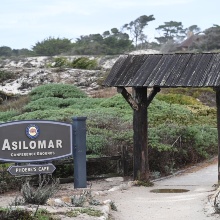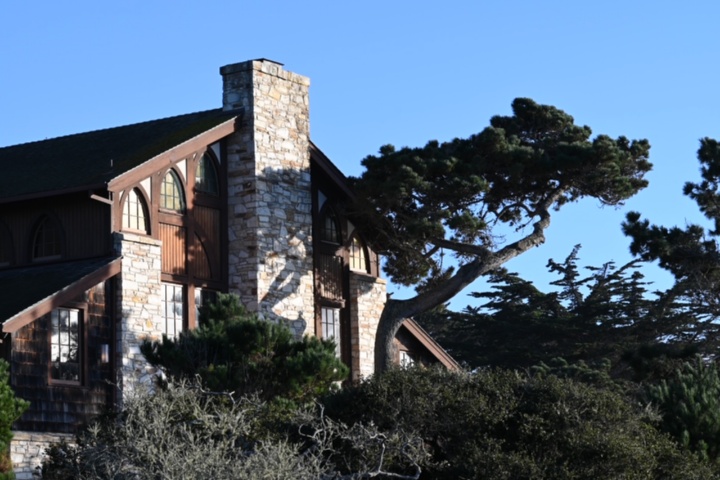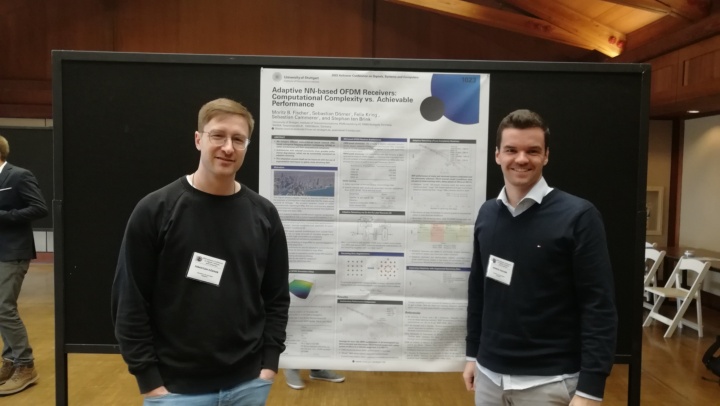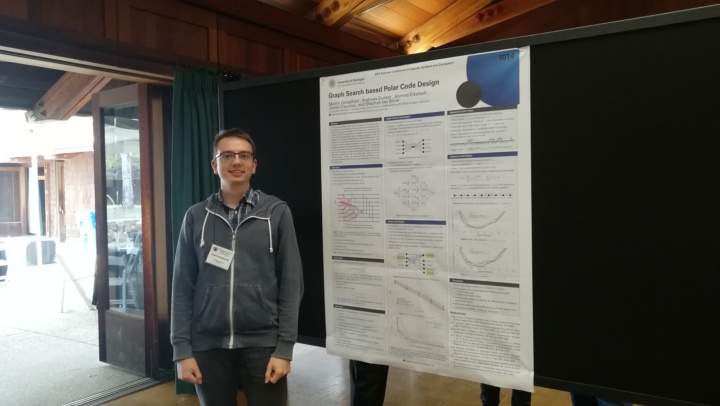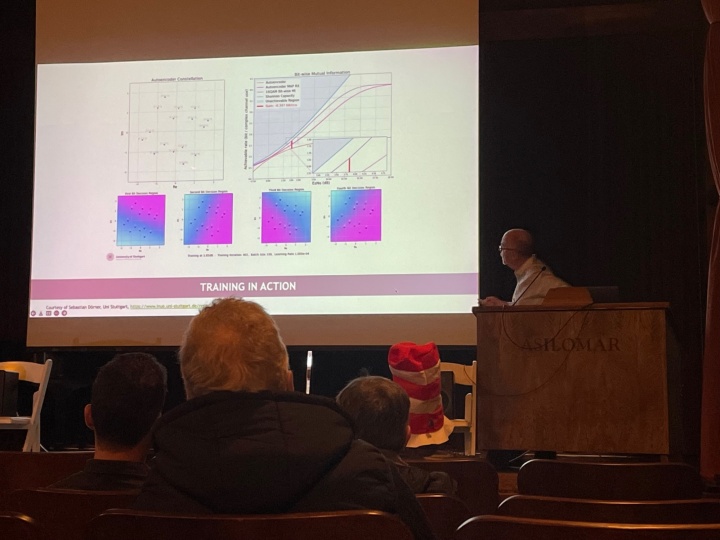INÜ PhD candidates Sebastian Dörner, Moritz Fischer and Marvin Geiselhart recently attended the Asilomar Conference on Signals, Systems and Computers in California.
There they presented their papers:
- Adaptive NN-based OFDM Receivers: Computational Complexity vs. Achievable Performance
- Graph Search based Polar Code Design
Their Contribution to Neural Network-based OFDM Receivers:
In recent years, the usage of neural networks in OFDM receivers has been
investigated in detail.
On the one hand competitive performances and gains compared to classical
baseline systems have been shown and the requirement for adaptive
receivers has been pointed out.
But on the other hand a majority of the investigated architectures come
with a huge computational complexity and a large memory footprint.
At the Asilomar Conference, we presented the paper „Adaptive NN-based
OFDM Receivers: Computational Complexity vs. Achievable Performance“.
In this work, we focused on the comparison of different NN
architectures, including versions with reduced complexity, which show a
graceful degradation in terms of bit error rate performance.
We show that such performance losses due to a lower complexity can be
compensated with adaptive retraining of the receiver online.
Finally, we demonstrated how the retraining process can be improved via
a data augmentation approach, which results in a faster adaptation.
Their Contribution to Polar Code Design:
Polar codes are the first family of error-correcting codes that provably
achieve Shannon's channel capacity.
There are many different instances of polar codes and finding a code
that works well for a given channel and decoder is called polar code
design.
While for some channels and decoders explicit constructions of optimal
polar codes are known, in most cases polar code design requires a search
through hundreds or thousands of options via Monte-Carlo simulation.
In essence, for each code candidate, the performance is estimated by
decoding many packets transmitted over a simulated channel and counting
the remaining number of bit or block errors.
The code that results in the lowest number of remaining errors is then
chosen to be used in the system.
Previously, no systematic method searching through the possible
candidates was known, and one had to resort to complex machine learning
or discrete optimization methods.
At Asilomar Conference, we presented our paper entitled "Graph Search
based Polar Code Design".
In this work, we propose to view the design problem as a search on a
graph, which limits reduces the number of promising candidates to check
drastically, speeding up the code design.
This way, we found better polar codes for iterative decoders than
previously in a shorter amount of time.
Moreover, our method also is capable of finding a sequence of codes that
can be adjusted in their rate to adapt to varying channel quality.


